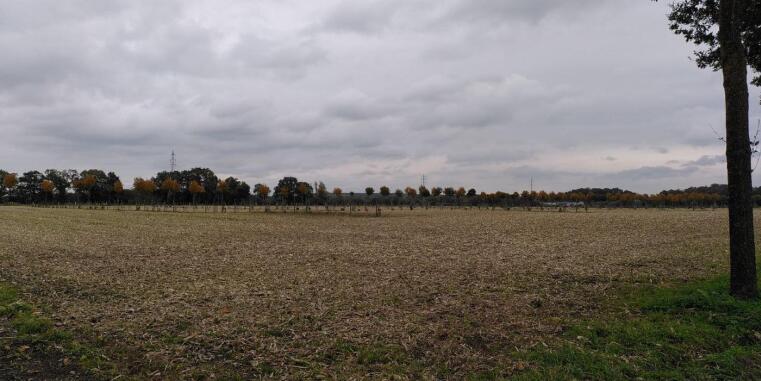
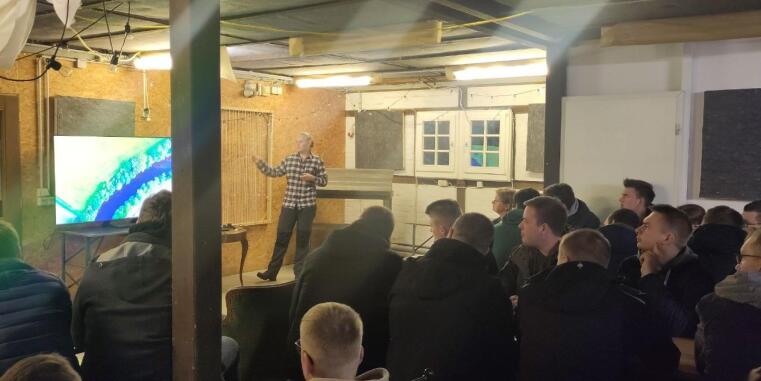
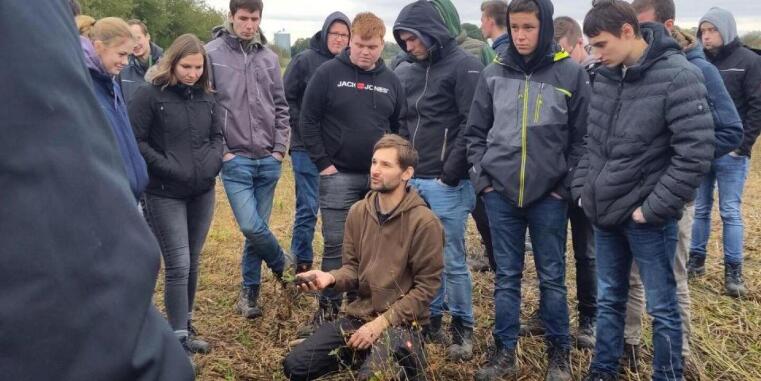
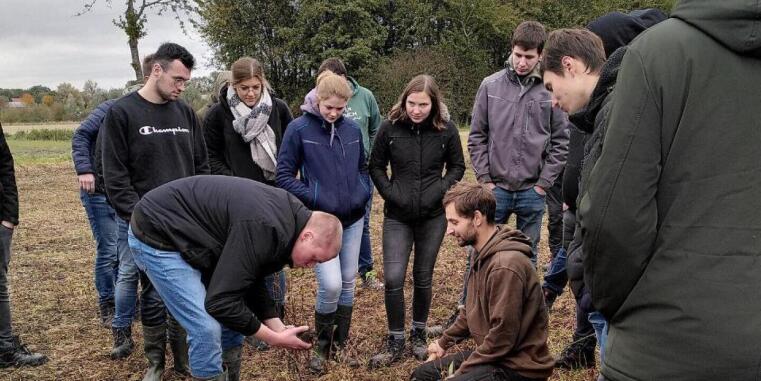
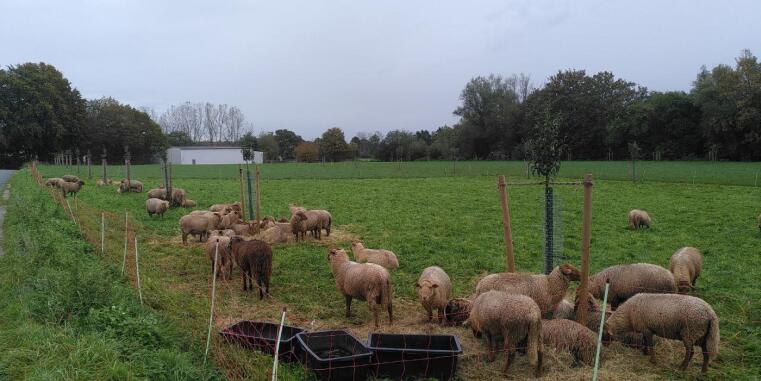
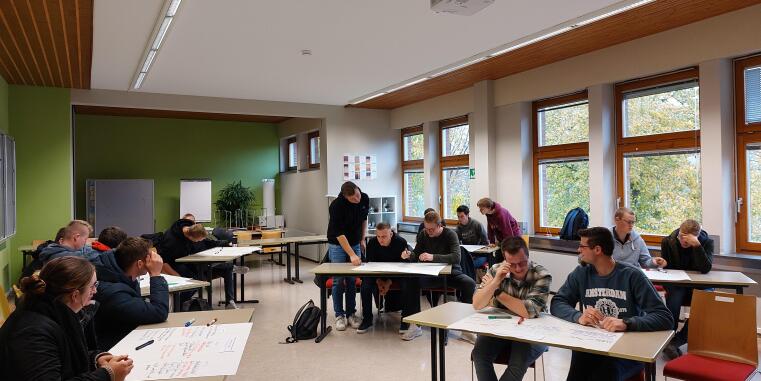

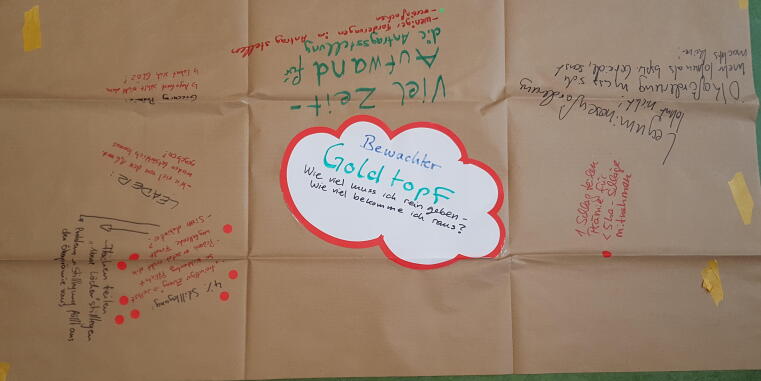
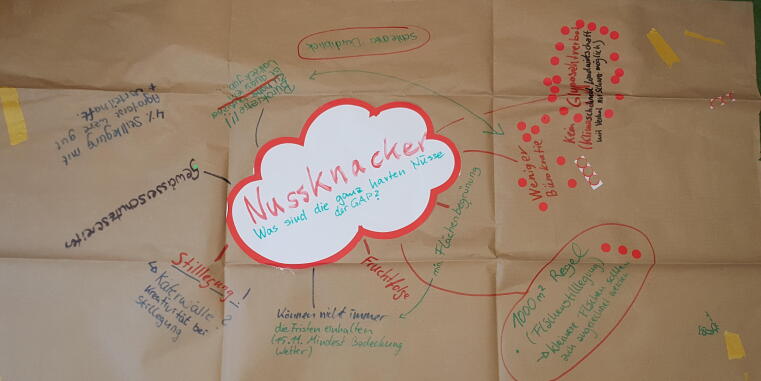










A new ZIN blog post by Dr. Cornelia Steinhäuser provides insights into the recently completed project.
Under the key question “How do young farmers see their future?” The project examines which visions guide young farmers in the face of the multiple crises of our time and a dramatic worsening of the situation for many agricultural businesses, and whether and to what extent the Common Agricultural Policy (CAP) with its increased focus on overall solutions are perceived as providing support for sustainable farming transformation of the agri-food system. A particular focus will be on the agroforestry systems, which were included in the CAP funding landscape from the 2023-2027 period as eco-schemes (or, depending on the federal state, as agri-environmental measures). Agroforestry systems are associated with multidimensional potential for adaptation to climate change, use of renewable energies, food security and revitalization of agricultural landscapes. At the same time, they promise to increase and diversify agricultural production and make farms more resilient on an ecological, economic and social level. This is not just about the integration of trees and/or bushes in fields, meadows or pastures, but also about the far-reaching challenges that come with it, such as intergenerational, long-term decisions and a rethinking of operational planning and working methods.
Therefore, a further research question is whether young farmers perceive the introduction and maintenance of agroforestry systems as an interesting strategy to secure their businesses and contribute to overcoming the challenges. The aim is to formulate appropriate structural (or financial) policy support, such as the CAP, that supports the visions of young farmers and their initiatives to strengthen resilience and agroforestry systems can be considered as a possibility. Methods from participatory social research are used. The broad use of a questionnaire and individual interviews about the personal visions of the young farmers and their perceived challenges are followed by different teaching formats that are intended to provide insights into the agroforestry systems. These include farm visits and workshops in order to talk to each other and to realistically capture the points of view and perspectives of the young farmers.
Project duration: May 2023 - January 2024
The project is funded by Rentenbank's Edmund Rehwinkel Foundation.
In August and September 2023, a questionnaire on the challenges and opportunities in agriculture and personal professional career, perspectives on European agricultural policy (CAP) and its contributions to soil, climate and nature conservation as well as to social well-being carried out. The willingness for partnership models among farmers and cooperation with buyers and consumers was also queried. In order to deepen the findings, guided interviews were also conducted at the agricultural school in Kleve.
There was an Agroforestry course In October 2023, students from the agricultural schools Wolbeck and Kleve visited two young agroforestry companies in Kleve and Steinfurt. In addition to general information about agroforestry, possibilities and difficulties could be discussed based on concrete experiences.
In November 2023, a workshop took place at the Wolbeck technical school, which was also attended by the students from the eco-class from Kleve. The opportunity to discuss the topics of agroforestry, GAP and future visions was given again in a different format using various interactive methods.